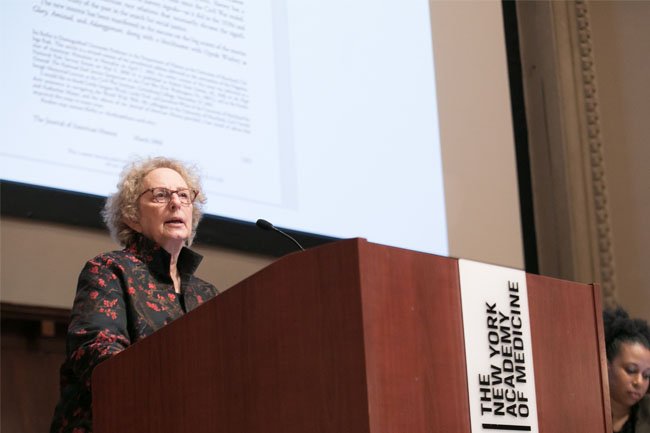Venue
The New York Academy of Medicine, 1216 Fifth Avenue at 103rd Street, New York, NY 10029
Cost
Free, advance registration required
The “Tuskegee Study of Untreated Syphilis” was an unethical medical research study conducted by the U.S. Public Health Service on hundreds of African-American men from 1932-1972. Approximately 400 study participants who had syphilis were told they were being treated for “bad blood” and never received the proper treatment for their illness, even after penicillin was widely adopted as a treatment for syphilis in the 1940s. The study failed to inform and protect these men, and has since influenced significant changes in U.S. laws and regulations relating to clinical research. This event will share first-person accounts from survivors of the Tuskegee Syphilis Study, combined with expert perspectives and audience discussion, to address the history and legacy of the study and why it remains relevant today.
This is the inaugural event in the new Race & Health series at the Academy.
MODERATOR:
Aletha Maybank, MD, MPH, is the Deputy Commissioner and Director of the Center for Health Equity, NYC Department of Health and Mental Hygiene and is the Founding Director of the Center for Health Equity. The Center’s mission is to bring an explicit focus to health equity in all of the Department’s work by tackling structural barriers, such as racism, ensuring meaningful community engagement, and fostering interagency coordination in neighborhoods with the highest disease burden. Prior to this role, she was an Assistant Commissioner in the NYC Health Department and served as the Director of the Brooklyn Office, a place-based approach. Dr. Maybank also successfully launched the Office of Minority Health as its Founding Director in the Suffolk County Department of Health Services in NY from 2006-2009. Dr. Maybank serves as Vice President of the Empire State Medical Association, the NYS affiliate of the National Medical Association. In the media and on the lecture circuit, she has appeared or been profiled on Disney Jr.’s highly successful Doc McStuffins Animated Series, ESSENCE Facebook live and their Festival’s Empowerment Stage, MSNBC’s Melissa Harris-Perry show, and various other outlets. She has also advised on the award-winning documentary Soul Food Junkies by Byron Hurt and Black Women in Medicine by Crystal Emery. For her accomplishments, she has won numerous awards.
SPEAKERS:
Monique A. Guishard, PhD, is the Chair of the Bronx Community Research Review Board and Associate Professor of Psychology at Bronx Community College.
Susan M. Reverby, PhD, is the Marion Butler McLean Professor Emerita in the History of Ideas and Professor Emerita of Women's and Gender Studies at Wellesley College. This year she is a fellow at the Project on Race and Gender in Science and Medicine at the Hutchins Institute for African and African American Research at Harvard University. A well-known medical historian, author/editor of numerous books, Reverby is most recently the author of the multiple prize winning book, Examining Tuskegee: The Infamous Syphilis Study and its Legacy and the historian whose work on immoral U.S. led research in Guatemala in the late 1940s led to a federal apology in 2010. She is currently completing her latest book, The Revolutionary Life of Brother Doc: A 20th Century White Man's Tale (University of North Carolina Press, 2020).

Academy President Dr. Judith A. Salerno welcomes speakers Dr. Aletha Maybank, Dr. Monique Guishard and Dr. Susan Reverby.

Dr. Salerno introduces the first event in the Academy's Race and Health series, "Could Tuskegee Happen Today."

Dr. Aletha Maybank of the NYC Health Department moderated the event.

Dr. Maybank: understanding Tuskegee is related to the American legacy of colonialism.

Dr. Susan Reverby: Tuskegee was about the denial of care, as well as deceit and racism in a research study.

Dr. Monique Guishard, Chair of the Bronx Community Research Review Board.

Dr. Guishard discusses the benefits and disadvantages of the BxCRRB's community work.

The panelists in conversation about the impact of Tuskegee on current clinical research trials.

Drs. Maybank, Guishard and Reverby take questions from the audience.

An audience member discusses the teaching of race and equity to future healthcare providers.
View our COVID-19 Safety Protocols for attending NYAM public events.